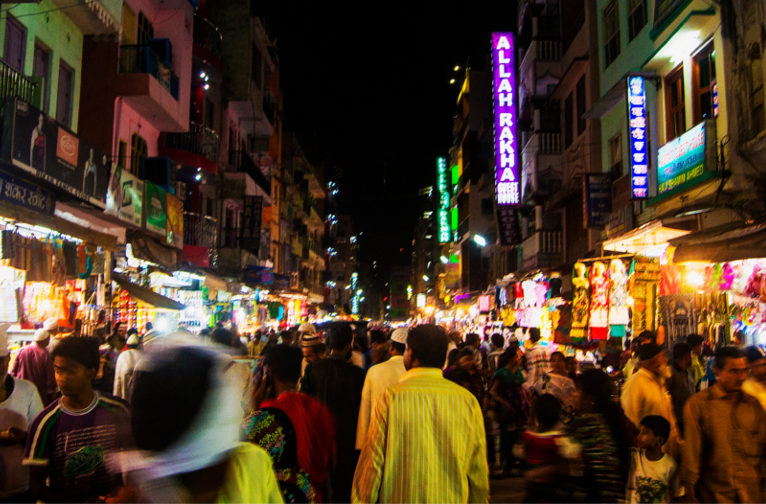Thanks to Brian Tokar for his wonderful overview of the promise and pitfalls of localism. I would like to offer a few observations.
I think the global/local binary is a misleading framework for this discussion because the very term “global” prejudices our understanding of the local. Globalization has been associated for so long with being a force for “development,” human progress, social emancipation, etc., that the local is inevitably seen as a direct antithesis—small-scale, backward, parochial. By implication, the local is also seen as politically marginal—a sideshow to national politics and global geopolitics. While many of us clearly have a different sense of the term “local,” it continues to have a whiff of sentimental regression and even nostalgia in the public mind. It is seen as a foil to modernity (which may be exactly what some of us want, but not in the conventional sense).
I find the global/local binary misleading for another reason. The behaviors, culture, identities, and markets that manifest at the local level are not truly independent of larger national and global systems. Telecommunications, transport, and capital flows have fed global integration, radically challenging the very meaning of the local in the process. The local and global have blurred into each other. While our biophysical bodies may indeed be inescapably local—we all need to live somewhere—our subjectivities, commitments, and working collaborations often have a wider, more complicated scope.
For example, in recent years cosmo-local production has emerged as a new mode of design and manufacturing.1
“Light” knowledge can be shared and developed globally, in an open-source fashion via the Internet, while “heavy” physical things can be produced locally in less expensive, modular ways using non-proprietary designs. This innovative approach to design and production—now being used to produce motor vehicles, houses, furniture, and agricultural equipment—has potentially important ramifications for efficient, eco-friendly production and local self-reliance. But we are not likely to see such possibilities if our thinking is controlled by geographic categories.
Let’s admit that the global/local polarity is itself an imaginary with a problematic history. It has been a way of dividing the nations of the world into “developed” and “developing,” modern and backward, scientific and superstitious. As we are discovering, the binary is dangerously flawed because it is not grounded in biophysical or geophysical realities at all, let alone cultural respect, but in the political designs of capital and state power. In his recent book Down to Earth, the French scholar of modernity Bruno Latour decries the global/local duality and calls for a new imaginary—the “Terrestrial”—that would focus our attention on ecosystems as the foundation for economies and culture.2
Having said all this, it is difficult to stop using the term “local” because it is an easy, shorthand way of expressing our desire for deeper, more meaningful relations with our neighbors and natural systems. Moreover, “local” is a term we may need to fight for. The term is being claimed by right-wing authoritarian movements and corporate marketers. When the Whole Foods supermarket chain (now owned by Amazon) markets its vegetables, beef, and fish as “local,” they mean that it comes from within a 350-mile radius. While corporations are rushing to embrace localism as a fresh marketing signal for wholesome and trustworthy, I fear the term may become the next empty buzzword after “sustainable.”
The real point here may be that we need a vocabulary that means much more than “situated in the local geography” or “driven by ordinary people.” We need a discourse that means “protected against global capitalists who treat everything as alienable for market purposes.” The fundamental problem is that various localist movements have not yet come to a shared understanding of how to pursue this principle. We lack a shared, coherent political discourse about how to keep our common wealth inalienable and accessible to everyone. To be sure, there are many relocalization movements that are committed to these goals. But not enough bridges have been built among diverse localists to develop a lingua franca and a shared vision for federated action.
Having lived and worked as an activist/scholar focused on the commons for many years, I see great value in this meta-discourse as a way to help bring together disparate players. The great breakthrough that allowed the Internet to arise was a set of software protocols known as TCP/IP (short for “transmission control protocol/Internet protocol”), which provided a way for digital networks with very different technical standards to interconnect and communicate reliably. So today, various relocalization movements need to develop a cultural analog of TCP/IP to help local actors interconnect and inhabit a common space. We need ways to assert solidarity and cooperative aspirations even while honoring our different practices, histories, and identities. I see great potential in the language of commoning because it honors the indispensable role of context, history, culture, and local circumstances while at the same time showcasing the recurrent patterns that manifest in different struggles against capitalism.3
The late social critic David Fleming, author of Lean Logic, describes our challenge well: “Large-scale problems do not require large-scale solutions; they require small-scale solutions within a large-scale framework.” I think those of us committed to local action need to give more thought to how to develop a large-scale framework that can align and knit together our diverse, smaller-scale initiatives and movements. I would start by trying to develop stronger working relationships, a shared discourse, and translocal infrastructures for mutual support.






